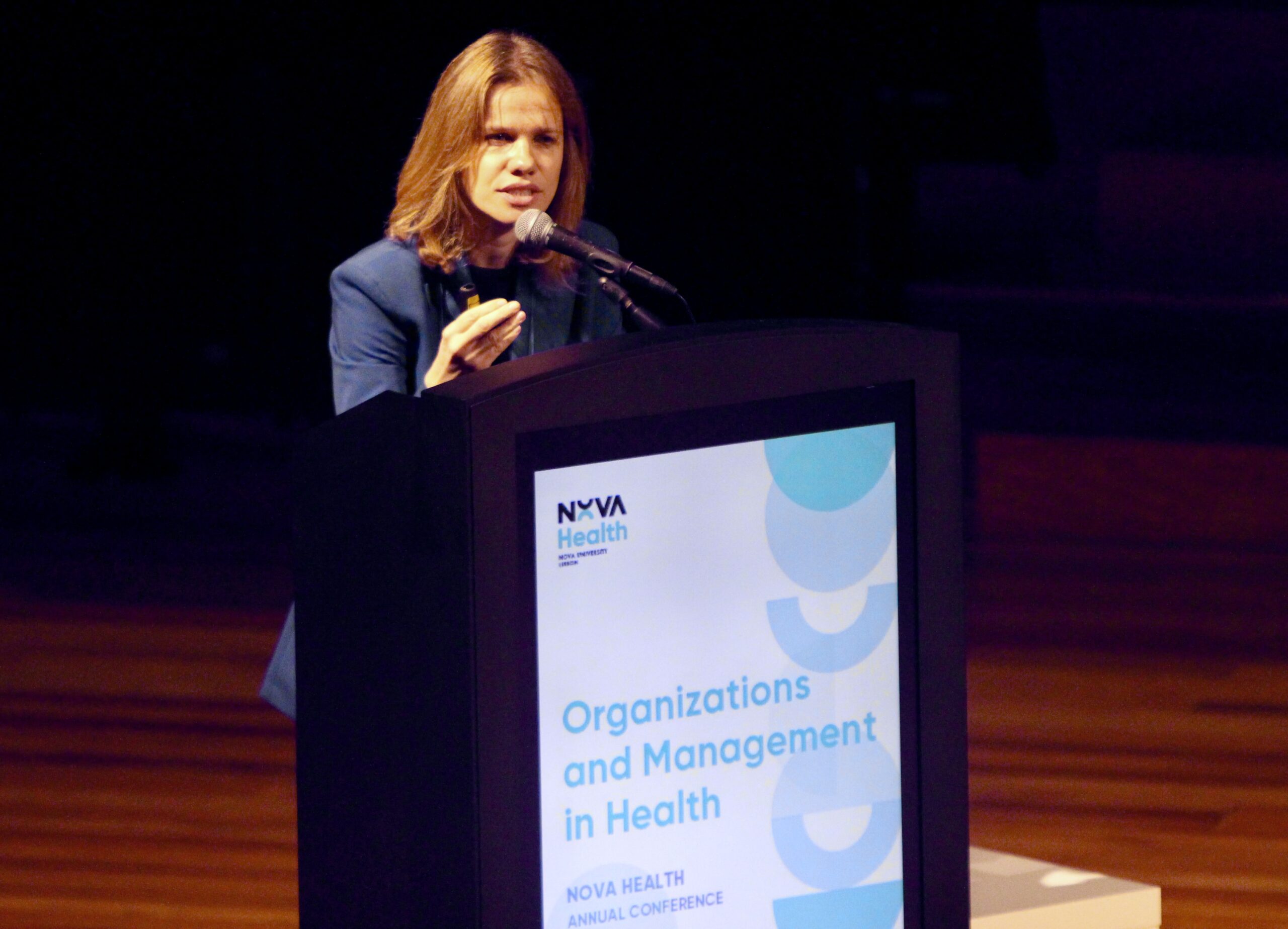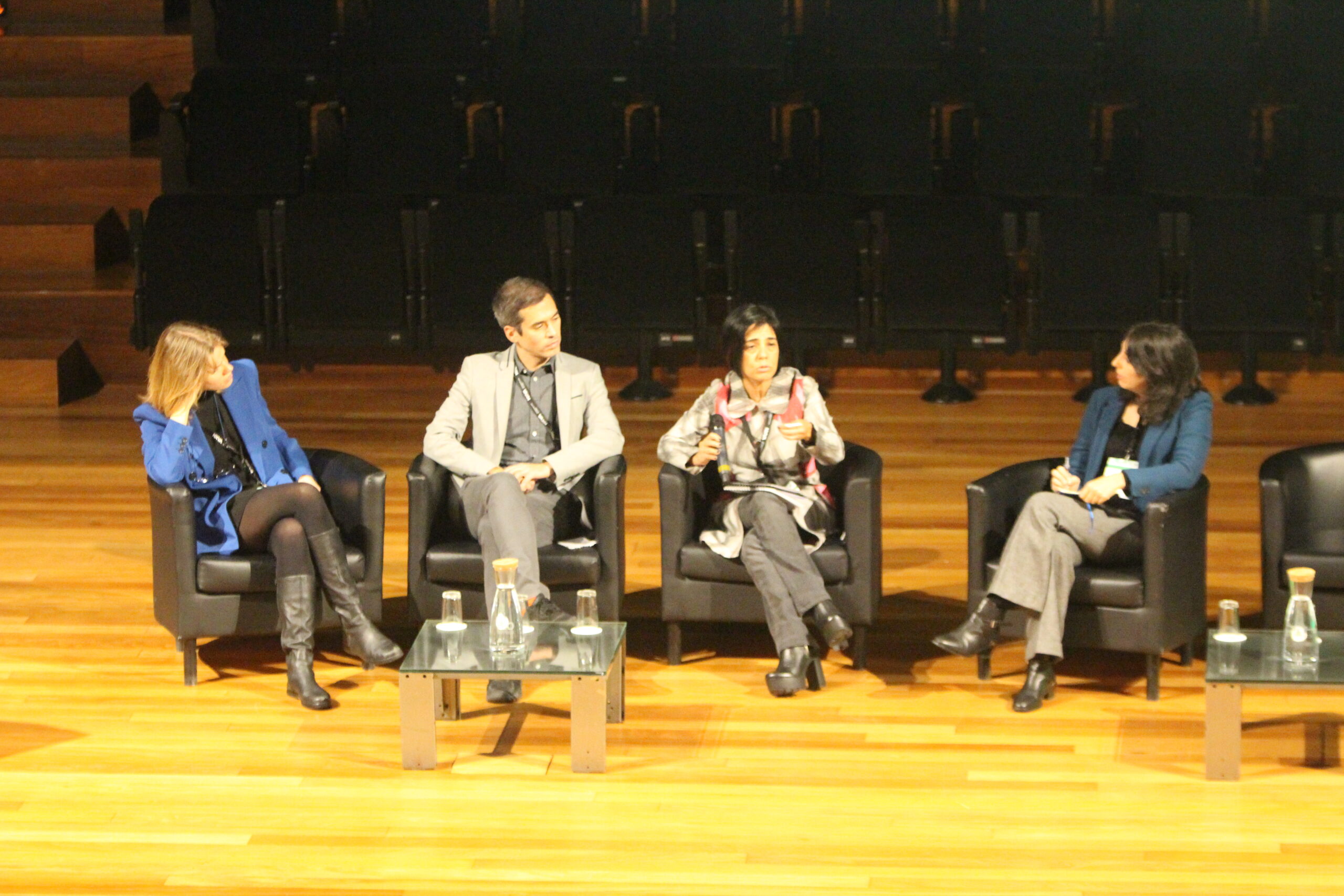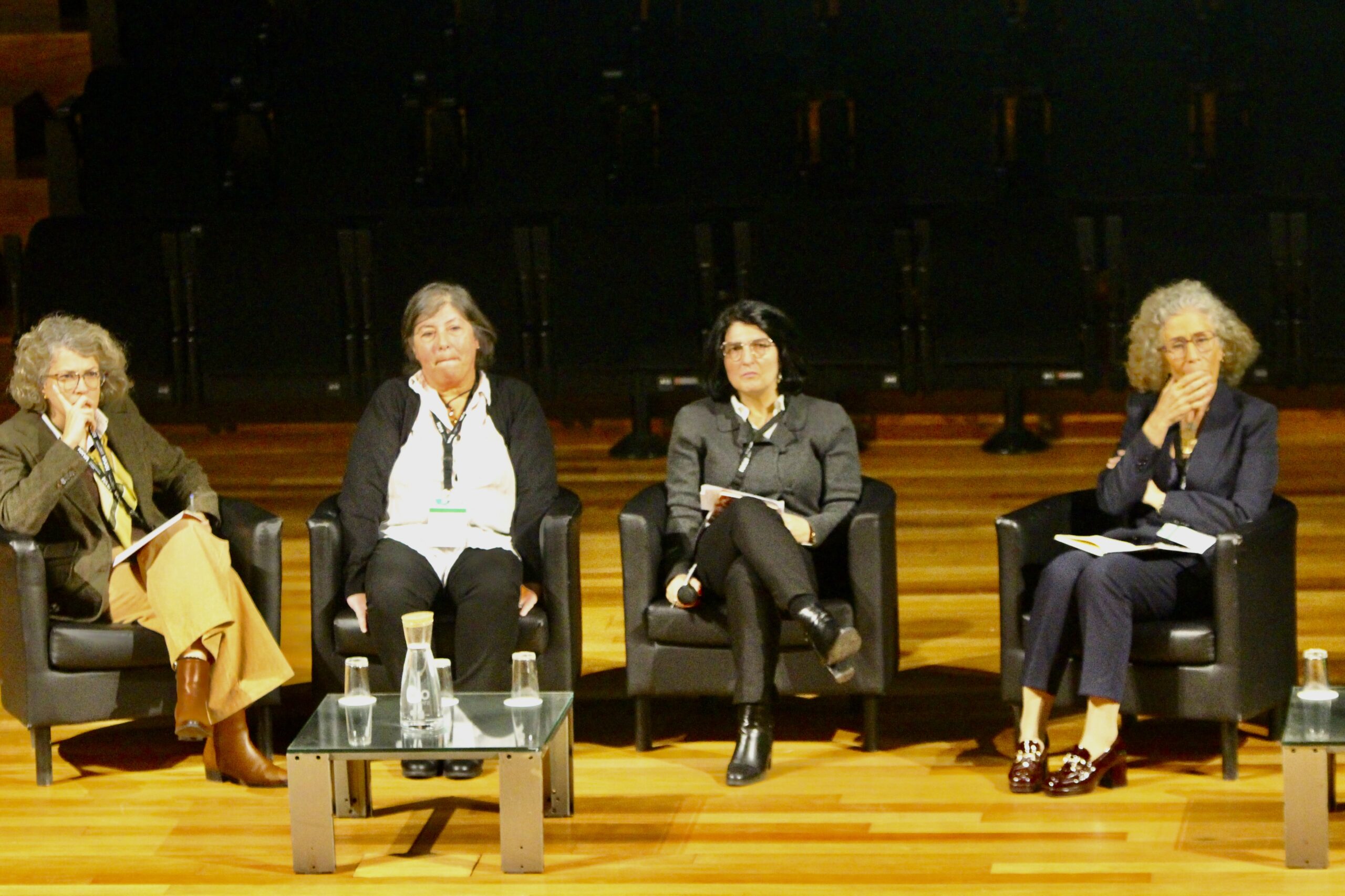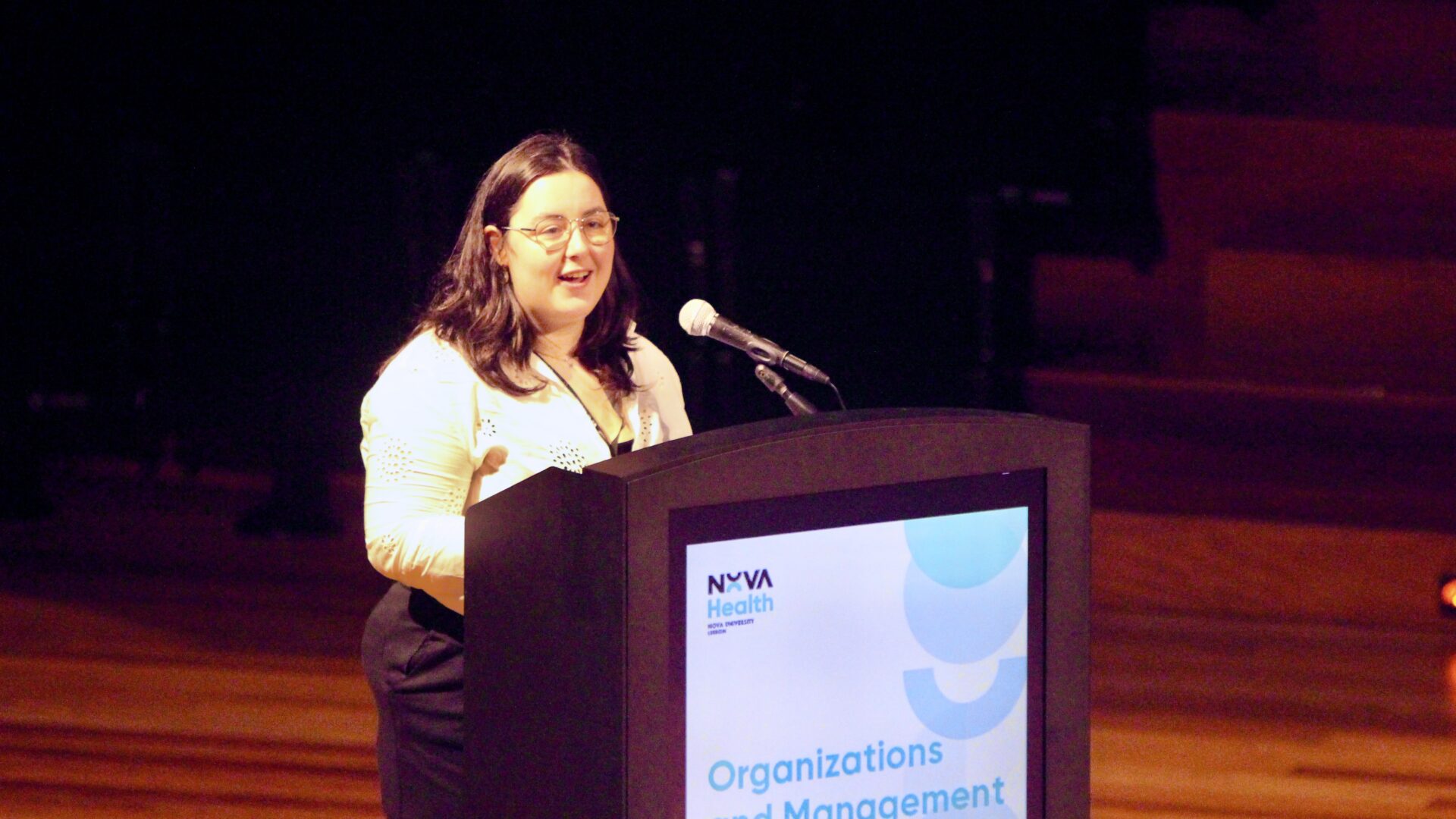New models of health care, human resources and communication were the themes that occupied a large part of the conference promoted by the strategic platform NOVA Health, held this Monday 25th at the auditorium of the Rectory of the NOVA University Lisbon.
The meeting was organised by the “Health Organisations and Management” group, coordinated by Isabel Craveiro (IHMT), Paulo Sousa (ENSP) and Pedro Pita Barros (NOVASBE), whose aim is to generate evidence from interdisciplinary knowledge in order to transform policies and improve health practices. After a welcome by the Pro-Rector of the NOVA Health Platform, Cláudio M. Soares, the meeting began with a presentation by Cláudia Almeida, researcher at ENSP, on the past, present and future of the Local Health Units ( ULS) – an organisational model that brings together hospitals and groups of health centres in a geographical area and that sets the challenge of looking at health care in an integrated way. And the data presented is not misleading: “more than the disease. acute, the greatest needs are related to support for chronic illness, which has a continuous need for care. ”
These ULS, which were highlighted in the launch of NOVAHealth Talks, the NOVA University Lisbon podcast dedicated to health issues, aim to integrate several dimensions, continued Cláudia Almeida – and costs, outcomes and user experience will also be important, she stressed, adding professional satisfaction: “To think about the care of the future, we need to change the paradigm. The focus will increasingly have to be on people’s needs rather than on services”.
“Lost in translation and other stories

The following presentations confirmed and complemented this perspective. First, it was the turn of Hanna Pięta, a researcher at NOVA FCSH, to present “Migrations, language barriers and AI translations in healthcare”, starting with the provocation implicit in the well-known Moravec paradox – the observation that what is easy for humans is usually not easy for artificial intelligence, and vice versa. “The unmediated application of AI to care contexts therefore runs the risk of leading to incorrect diagnoses,” he warned.
Furthermore, she stressed that in the data already collected by NOBarriers2Health, an exploratory study by the Centre for English Translation and Anglo-Portuguese Studies (CETAPS) at NOVA FCSH, it is clear that 99 per cent of the content available online by health services is only available in Portuguese – with the right to automatic (and inaccurate!) translation by Google Translate – or with a delay of one month and without the right to any update.

Next, Ana Margarida Barreto, professor and researcher at the Department of Communication Sciences at the same NOVA FCSH, explained the challenges of “improving health systems through communication”. She said that “in order to establish patient-centred communication, we need to rethink the concept of value, associating it more with the results obtained than with the quantity of services provided”.
“Human resources in health: a vision of the situation” was the title chosen by Inês Fronteira, professor at ENSP NOVA, whose research focuses on health policies and systems, and she presented the global panorama that reflects another issue: “more than just a shortage of health workers, we see a huge asymmetry in their distribution”.
From the Kingdom of Utopia – or a dream called “NOVA Walk in Clinic”
Paula Broeiro, general practitioner and coordinator of the Olivais Personalised Health Care Unit in Lisbon, and Teresa Luciano, president of ULS Almada Seixal, closed the meeting with a very concrete exchange of experiences, warning that the new generations have different values when it comes to assessing the attractiveness of a job.

“They think about work differently and value flexibility more”, said the director of ULS Almada Seixal, after the coordinator of UCSP dos Olivais had already offered us something that she considered – at least for now – to be in the realm of utopia: “Imagine a NOVA ‘walk-in clinic’ that focuses first on primary health care – that is, prevention – and only then on acute illnesses that require urgent hospital care; that uses AI to develop predictive risk models, and that complements its services by investing in training and saving space for research.”

